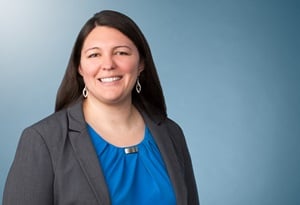New SBA Regulations Provide Clarity on the Application of the CARES Act Paycheck Protection Program to Tax-Exempt Nonprofit Organizations
Under the Coronavirus Aid, Relief, and Economic Security Act (CARES Act), the Small Business Administration (SBA) has been granted the authority to (i) modify the SBA’s existing Section 7(a) Loan Program and (ii) establish a new loan program (the “Paycheck Protection Program” or “PPP”) to provide assistance to small businesses and tax-exempt nonprofit organizations described in section 501(c)(3) of the Internal Revenue Code (Nonprofit Organizations) to help blunt the impact of the widespread outbreak of COVID-19. This summary provides additional information on the PPP for Nonprofit Organizations.
Application of the SBA’s Affiliation Rules to Nonprofit Organizations
Prior to the CARES Act, Nonprofit Organizations were not eligible to participate in the SBA Business Loans Programs under section 7(a) of the Small Business Act. However, under the CARES Act, Nonprofit Organizations with 500 or fewer employees are eligible to take advantage of the funding associated with the PPP. The SBA’s interim final regulations, issued April 2, provide details on calculating an organization’s number of employees, among other topics. Importantly, Nonprofit Organizations generally are subject to the affiliation rules provided in 12 C.F.R. §121.301(f) (Affiliation Rules). In short, the pertinent provisions of the Affiliation Rules require applicants to the PPP to include the employees of entities deemed “affiliates” in the calculation of such applicant’s employee count. On April 3, the SBA issued Affiliation Rules specific to the PPP, and we have provided an overview of the affiliation rules.
Determining which entities are affiliates
Entities, including Nonprofit Organizations, are deemed affiliates of each other if one entity controls, or has the power to control, the other entity. See 12 C.F.R. §121.103(a)(1). While Nonprofit Organizations are not subject to ownership control (because there is no private ownership of Nonprofit Organizations), such organizations may be subject to the Affiliation Rules to the extent that another entity has the ability to control such Nonprofit Organization or vice versa.
For example, a majority of the members of the board of directors of a Nonprofit Organization may be appointed or elected by, or designated by their positions with, another entity, in which case the organizations are “affiliated,” and the employees of the Nonprofit Organization and the other entity must be aggregated for purposes of the PPP rules. To that end, applicants to the PPP must determine the employee count of (i) the relevant Nonprofit Organization and (ii) any potential affiliates of the relevant Nonprofit Organization.
A Nonprofit Organization may want to consider looking to Schedule R of its Form 990, as organizations listed as “related” on Schedule R have the potential to be “affiliates” under the SBA rules. Nonprofit Organizations that are supporting or supported organizations described in Internal Revenue Code section 509(a)(3) likely will be treated as affiliated with their supported or supporting organizations. Likewise, taxable subsidiaries controlled by Nonprofit Organizations likely will be treated as affiliated with such Nonprofit Organizations, and commonly controlled subsidiaries (whether taxable or not) may be required to count one another’s employees in light of their relationships with a common parent. Additionally, Affiliation Rules appear to apply between multiple levels of subsidiaries, such that affiliation may be found between two organizations that are two or more levels apart in a group of related organizations. Again, if organizations are “affiliated,” then their numbers of employees will be aggregated in determining whether either qualifies for the PPP.
Exemption for religious organizations
The SBA has recognized that the application of the Affiliation Rules to faith-based Nonprofit Organizations may present a substantial burden to obtaining the funding available under the PPP and therefore has provided an exemption to the Affiliation Rules for faith-based Nonprofit Organizations. Such faith-based Nonprofit Organizations often have affiliations with other faith-based entities (e.g., their denomination or their order) and many such organizations would likely be ineligible to participate in the PPP without the exemption provided by the SBA.
Specifically, the SBA has determined that its Affiliation Rules do not apply to a relationship between any church or other faith-based Nonprofit Organization with any other entity that is “based on a sincere religious teaching or belief or otherwise constitutes a part of the exercise of religion.” Finally, the SBA has determined that the reasonableness of the faith-based Nonprofit Organization’s determination in this regard (i.e., that its affiliation qualifies for this exemption) will not be assessed by the SBA or participating lenders. The SBA guidance linked in the paragraph above provides advice and sample language for faith-based organizations that are eligible to make use of the religious exemption.
Religious Liberties Under the CARES Act
The SBA has provided clarification regarding the potential impact on religious liberties for Nonprofit Organizations that are organized to carry out tax-exempt religious purposes. Such Nonprofit Organizations that intend to apply for financial relief under the PPP may find comfort in the following statement issued by the SBA in section 5 of the Interim Final Rule:
All loans guaranteed by the SBA pursuant to the CARES Act will be made consistent with constitutional, statutory, and regulatory protections for religious liberty, including the First Amendment to the Constitution, the Religious Freedom Restoration Act, 42 U.S.C. 2000bb-1 and bb-3, and SBA regulation at 13 C.F.R. 113.3-1h, which provides:
“Nothing in [SBA nondiscrimination regulations] shall apply to a religious corporation, association, educational institution or society with respect to the membership or the employment of individuals of a particular religion to perform work connected with the carrying on by such corporation, association, educational institution or society of its religious activities.”
The SBA intends to provide additional guidance regarding the religious liberty protections afforded under the PPP. In the meantime, however, Nonprofit Organizations that carry out religious purposes, if they rely on the exception in 13 C.F.R. §113.3-1h to have a religion requirement for those carrying on religious activities, may apply for the PPP loan program with confidence that this alone would not prevent them from signing the certification that states “I will comply, whenever applicable, with the civil rights and other limitations in this form.”
Paycheck Protection Program Borrower Application Logistics
Finally, given that Nonprofit Organizations are not permitted to distribute net earnings to any private shareholder or individual, Nonprofit Organizations are not subject to the financial control of any other entity. Therefore, in the context of the “Applicant Ownership” section of the PPP Borrower Application, Nonprofit Organizations may consider including a statement that reflects the non-ownership characteristics of such Nonprofit Organization. Such a statement could include language such as “Applicant is a 501(c)(3) tax-exempt organization without private owners.”
Additional Resources Provided by Faegre Drinker
Faegre Drinker’s Coronavirus Resource Center is available to help you understand and assess the legal, regulatory and commercial implications of COVID-19.The material contained in this communication is informational, general in nature and does not constitute legal advice. The material contained in this communication should not be relied upon or used without consulting a lawyer to consider your specific circumstances. This communication was published on the date specified and may not include any changes in the topics, laws, rules or regulations covered. Receipt of this communication does not establish an attorney-client relationship. In some jurisdictions, this communication may be considered attorney advertising.



